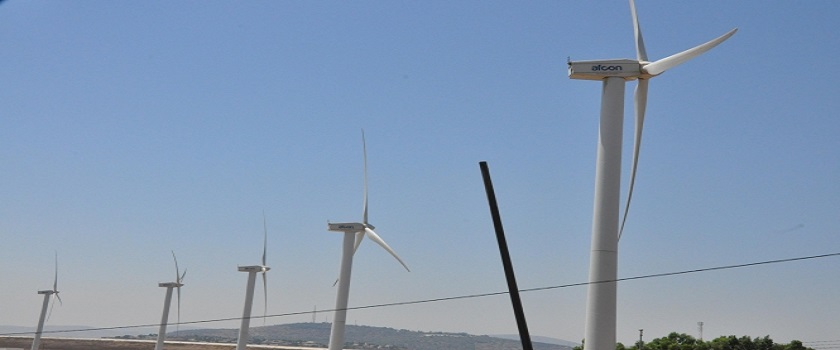An Israeli plan for power and electricity in the West Bank.

Palestine Economy Portal
The Israel Electricity Corporation has begun expanding the electricity network in the occupied Palestinian territories, in order to develop the high-pressure network for all settlements, according to a plan prepared by the Israeli Ministry of Energy that includes the construction of small power stations in different areas in the West Bank.
The revelation of the Israeli energy plan in the West Bank comes weeks after the US administration revealed the peace plan in the Middle East known to the media as the "Deal of the Century", and aims to liquidate the Palestinian issue.
The newspaper "Israel Hayom" reported that the main plan developed by the Israeli Electricity Company aims to supply energy in the long term in the West Bank and to support the settlement project.
The plan was prepared and drafted under the supervision of the Israeli Energy Minister, Yuval Steinitz, about a year ago, after several years of power failure and an imbalance in the supply of electricity to the settlements, where the electricity company was extending and deploying the electricity network and the company's infrastructure in the West Bank without any planning.
According to the plan, which the newspaper obtained details, the updated network will provide services to the settlements and to the Palestinian towns, assuming that Israel will remain the sovereign and responsible for the West Bank until the year 2040.
As a result, the plan was divided into three periods: by 2025, two sub-stations will be established to supply the settlements with electricity, and accordingly two stations will be established to sell electricity to the Palestinians.
Then, by 2040, four sub-stations will be established for the Palestinians. Meanwhile, more than 300 km of high-pressure transmission lines will be laid over the next 30 years.
The plan was drawn up, according to the newspaper, in the wake of the needs pointed out by the heads of settlements in the West Bank, where the minister will inform them in the coming days of the broad lines of the energy plan, which is estimated to cost 3 to 4 billion shekels.
"When I took office, it became clear to me that the water and electricity infrastructure in the West Bank was in poor condition, and that all of them - Jews and Arabs - were suffering from water shortages and problems with electricity supplies," the newspaper quoted Steinitz as saying.
Accordingly, he added, "As a plan has been prepared in the water sector, a plan in the field of electricity and energy has been implemented in the West Bank, which takes into account the increase in population and the increasing needs of local communities and settlers. The plan will significantly improve the quality of electricity supplies throughout the West Bank."
The revelation of the Israeli energy plan in the West Bank comes weeks after the US administration revealed the peace plan in the Middle East known to the media as the "Deal of the Century", and aims to liquidate the Palestinian issue.
In response to whether the energy plan was related to the "Deal of the Century", the Energy Department claimed in its response to the newspaper that the Israeli plan has no basis or political connection to the plan of US President Donald Trump, nor does it come in the context of the Knesset elections.
The newspaper quoted sources in the ministry as saying, "Guidelines for formulating the plan were presented a long time ago, due only to the needs that have arisen in this field, knowing that the plan examines, in the long run, energy needs in the West Bank, with the expectation of an increase in the Jewish and Palestinian population."
The Israeli ministry also says that "although the substations will be Israeli, the responsibility for supplying them to the Palestinian consumer will be transferred to the Palestinian Authority. The infrastructure for renewable wind and solar energy development projects will also be established in the West Bank. Where it is planned to establish substations in an area Alfi Manshiyeh, and Ma'aleh Ephraym in the Jordan Valley, Nablus and Beit Ola.


